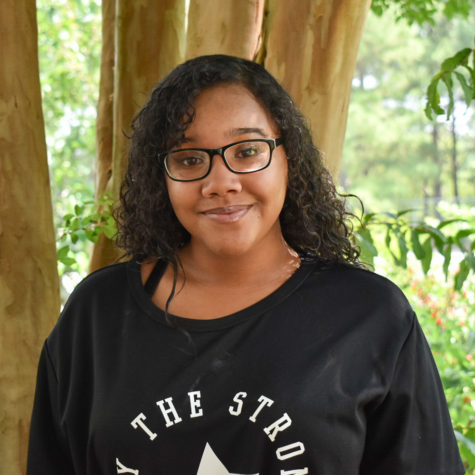The way Native Americans are perceived is a big problem
Native Americans were in America long before Columbus stepped foot, and yet they are not respected.
What is the first thing that comes to mind when you think of November? Thanksgiving, family, football? As a Native American, the first thing that comes to mind for me is Native American heritage month, a time to acknowledge the important contributions and celebrate true traditions and history of Native people. However, because of the holiday’s Eurocentric point of view, many Native Americans resent Thanksgiving and some even choose not to celebrate.
The important month is often overshadowed by the stereotypes that come with Thanksgiving, and the ignorance some non-native Americans have on Native American culture. Constraining us into a “box” of how Native Americans should look, speak and act. Most of this confusion is caused by mainstream media. Many have seen bad plays performed by fifth graders or classic Western films that all depict Native Americans in the same way; half-naked, friendly with an oddly slow way of speaking. Today, in any Native American tribe you will see none of this. All you will be able to find are normal people trying to preserve their culture.
Many Native Americans find spreading knowledge to be an uphill battle. This is because many influential people, such as celebrities and politicians, view us in a stereotypical way. For example, U.S. Senator Elizabeth Warren was recently accused by President Trump of falsely claiming to be Native American. The issue was resolved after she provided a DNA test that said Warren was indeed Native American. Well, 1/64 Native American. Like many other U.S. citizens, President Trump viewed Native Americans to all have brown skin, a stereotype proved wrong by Warren. Native Americans come in many different shapes and sizes. Another case of Native American stereotyping can be found in 2016, when Hilary Duff and Jason Walsh dressed as a Native American and Pilgrim for Halloween. Native American culture is not a costume and we are not the fictional fairies or zombies typically seen on Halloween night. These people have the power to reach others with their voices, it is shameful that many choose to promote stereotyping.
There needs to be a change in the way Native Americans are perceived. This should start in the classroom. Many students are taught about Thanksgiving in elementary school. Starting in schools is the first step to stopping Native American culture from being “swept underneath the rug” and bringing attention to the diversity of our culture.
Simply asking non-native children questions such as “where do Native Americans live today?”, can reveal a lot about what they have been taught in school and how much is correct. Using this knowledge, parents should take it upon themselves to correct their children and promote curiosity in Native American culture.
We as a collective society should listen to Native American voices. Take time this month, or any month of the year to learn something new about Native American history and our cultural contributions to the United States.
Your turn: Do you agree that Native American stereotypes need to cease? Should Elizabeth Warren be seen as Native American? Will you perceive Thanksgiving differently?




